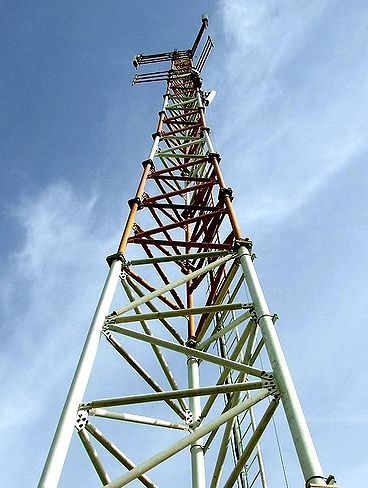Officials from the Telecom Regulatory Authority of India has released a statement with these findings.
Telecom Regulatory Authority of India (TRAI) officials recently spoke in Kolkata and indicated that the reason mobile services have been steadily deteriorating over the last while is that the country is not sufficiently supplies with mobile towers.
They explained that there are strict guidelines in the country with regards to EMF radiation from BTS.
TRAI advisor, Agneshwar Sen explained that in India, there are tight guidelines for the EMF radiations from the base transceiver stations (BTS) that are necessary for mobile services, when compared to those of other countries. This includes the benchmark standards that have been established by developed nations. He explained that, as a result, “Lack of adequate number of mobile towers is one of the reasons for deteriorating quality of mobile services.”
These regulations over towers for mobile services were implemented following concerns over public health.
 The TRAI principal advisor, Suresh Kumar Gupta, underscored that the government in India has worked very hard in partnership with the telecom department and with TRAI in order to be able to “implemented stringent emission norms that ensure no adverse effects on human health from mobile tower emissions.” When speaking at an interactive session about the impact of EMF radiation on human health, Gupta controversially explained that the mobile tower radiation is “nothing more than radio waves whose energy and frequency levels were far too low or weak in strength to present any risk or hazard to health.”
The TRAI principal advisor, Suresh Kumar Gupta, underscored that the government in India has worked very hard in partnership with the telecom department and with TRAI in order to be able to “implemented stringent emission norms that ensure no adverse effects on human health from mobile tower emissions.” When speaking at an interactive session about the impact of EMF radiation on human health, Gupta controversially explained that the mobile tower radiation is “nothing more than radio waves whose energy and frequency levels were far too low or weak in strength to present any risk or hazard to health.”
This placed Gupta under fire from a number of public health watchdog groups that argued that the statement was inadequately supported by scientific evidence and that there had even been research completed that suggested otherwise.
That said, Gupta’s claim did align with that of a broad range of respected international organizations, including the WHO, which have said that exposure to EMF radiation for mobile services is not connected with health effects on either children or adults. As of yet, the identification of too few towers is only the start of the process. A solution to the problem has not yet been chosen.

 At the moment, the fee being charged for an annual subscription of WhatsApp has been $0.99 USD or the equivalent for other countries worldwide. That fee is typically waived for the first year, already, and then begins once the second year gets started. That said, this fee is going to be removed completely over the next few weeks.
At the moment, the fee being charged for an annual subscription of WhatsApp has been $0.99 USD or the equivalent for other countries worldwide. That fee is typically waived for the first year, already, and then begins once the second year gets started. That said, this fee is going to be removed completely over the next few weeks.